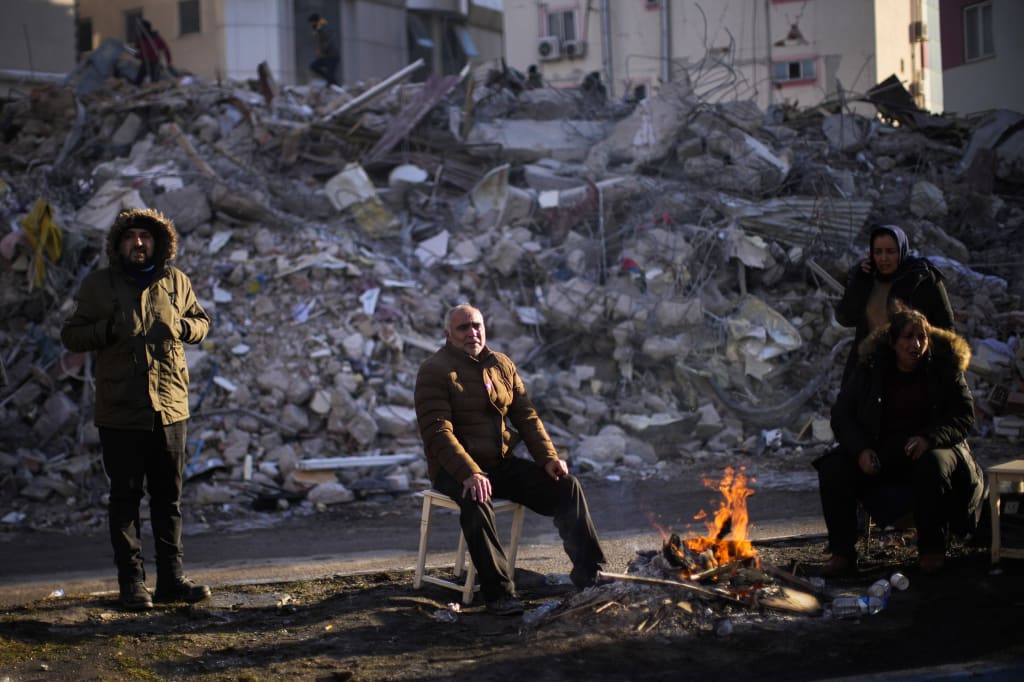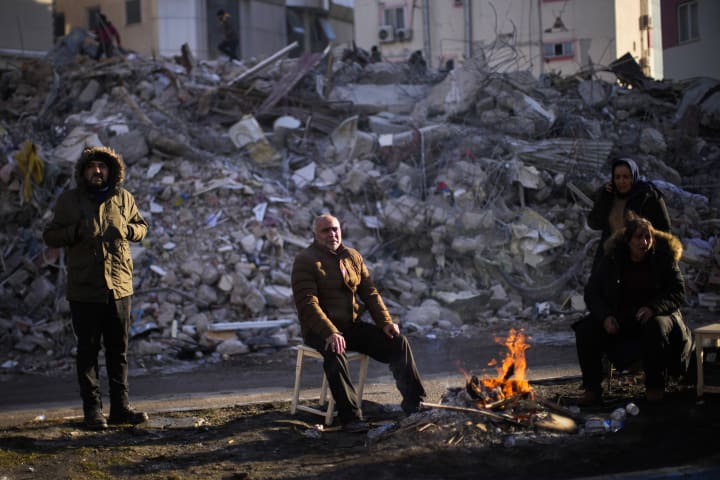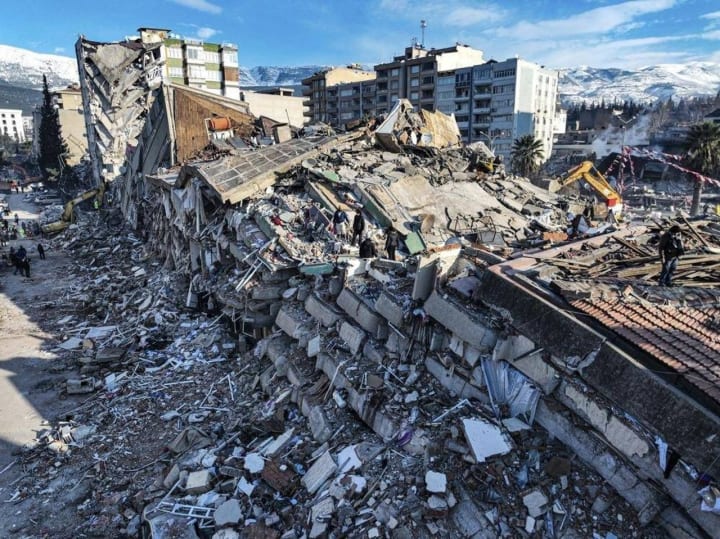The Tragic Aftermath of Turkey's 2023 Earthquake: A Call for Better Preparedness
An in-depth look at the devastating impact of the quake, the efforts to support those affected, and the need for improved disaster response and infrastructure

On the morning of January 24th, 2023, a powerful earthquake struck the province of Elazig in eastern Turkey, causing widespread devastation and loss of life. The quake, which measured 6.8 on the Richter scale, was felt across a large area, including the neighboring provinces of Malatya, Bingol, and Diyarbakir.
The initial quake was followed by several aftershocks, some as strong as magnitude 5.4, causing additional damage to buildings and infrastructure. The hardest hit was the city of Elazig, where buildings collapsed and many people were trapped under the rubble. Rescue teams worked around the clock to search for survivors, but the death toll continued to rise as the days passed.
As of February 13th, 2023, the official death toll stands at over 100 people, with over 1,000 injured and hundreds more missing. The number of casualties is expected to rise as rescue teams continue to search for survivors in the rubble. The earthquake also caused significant damage to infrastructure, including roads, bridges, and power and communication networks, making the relief and rescue efforts more challenging.
The Turkish government has declared a state of emergency in the affected areas and has mobilized its resources to respond to the disaster. The military has been deployed to assist with rescue and relief efforts, and mobile field hospitals have been set up to provide medical care to the injured. The government has also made available financial assistance to those affected by the disaster and has established temporary shelters for those who have lost their homes.
International aid has also been flowing into Turkey, with many countries sending teams of experts and supplies to assist in the relief efforts. The European Union and the United States have both pledged their support, and several humanitarian organizations are working in the affected areas to provide food, water, and other essentials to those in need.
The earthquake in Turkey serves as a reminder of the power of nature and the importance of preparedness for natural disasters. While the country has experienced earthquakes in the past, this latest event highlights the need for better building codes and infrastructure to minimize the impact of such disasters in the future.

In the aftermath of the earthquake, many people in the affected areas are struggling to cope with the loss of their homes, possessions, and loved ones. The psychological impact of the disaster is also becoming increasingly evident, with many people reporting symptoms of anxiety, depression, and post-traumatic stress disorder.
In response to these needs, the Turkish government and various humanitarian organizations are providing counseling and mental health support to those affected. This is an important aspect of the relief efforts, as it helps people to cope with the emotional impact of the disaster and to begin the process of healing and recovery.
The earthquake has also raised concerns about the state of Turkey's infrastructure and building codes. Many of the buildings that collapsed during the quake were constructed before current building standards were established, and this has raised questions about the need for stronger building codes and better infrastructure to minimize the impact of future earthquakes.
The government has already launched an investigation into the disaster, and it is expected that the findings will be used to inform future building codes and infrastructure development. This will be a critical step in ensuring that the country is better prepared for future natural disasters and that the loss of life and property is minimized.

In addition, the earthquake has also brought attention to the need for better disaster preparedness and response. The Turkish government and various organizations have been praised for their quick response to the disaster, but it is clear that there is still much work to be done in terms of improving disaster preparedness and response.
In conclusion, the earthquake in Turkey has had a devastating impact on the country and its people, but it has also shown the strength and resilience of the human spirit in the face of adversity. The international community continues to support Turkey, and it is our hope that the country will emerge from this tragedy stronger and better prepared for the future.
About the Creator
Andrei Florescu
I am a person who is passionate about writing and reporting, and who has a strong interest in staying up-to-date with current events and delivering insightful, informative and well-researched content to the public.






Comments
There are no comments for this story
Be the first to respond and start the conversation.